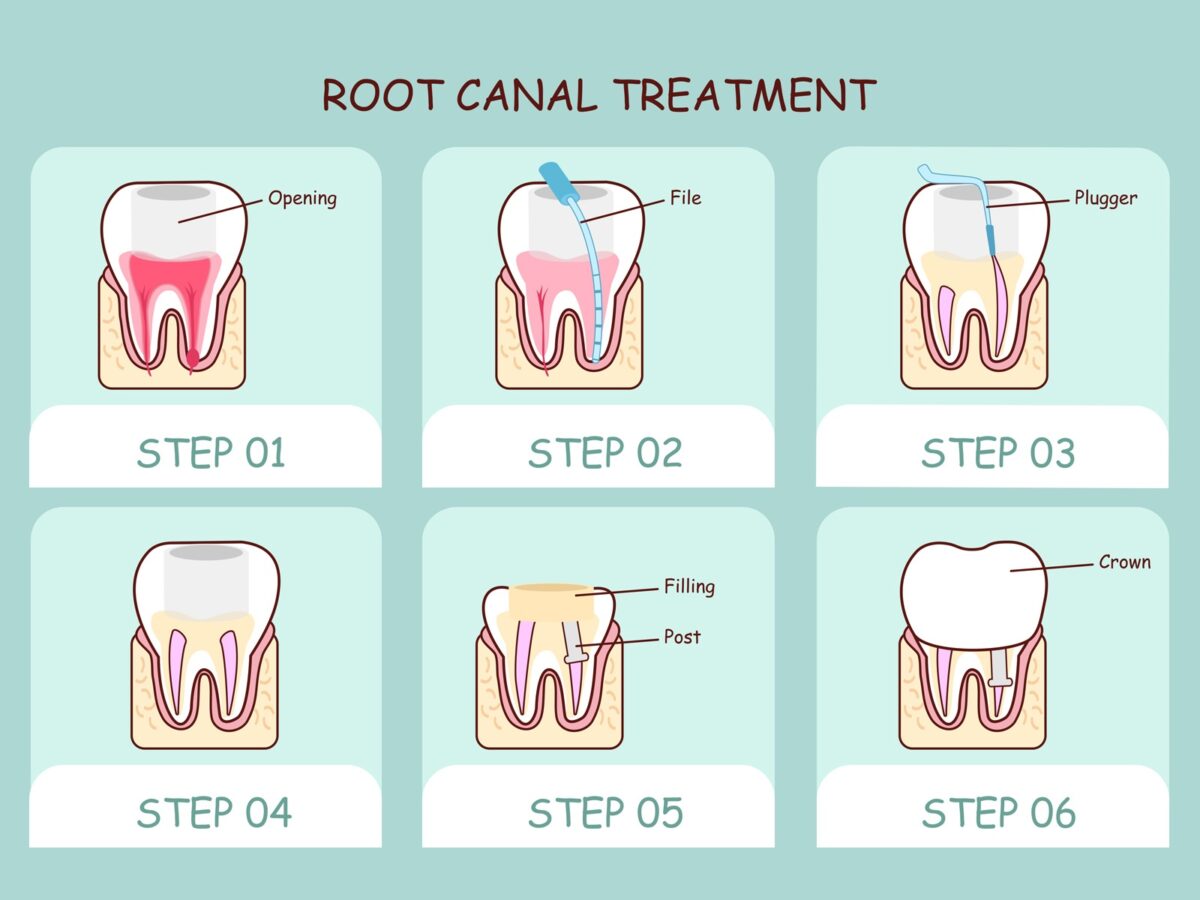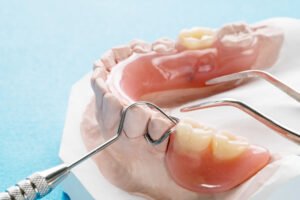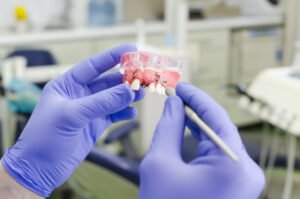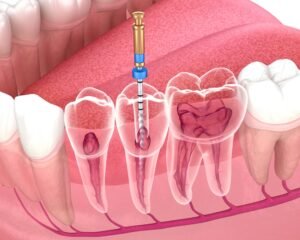Recovering from a root canal typically takes less than a week, with mild discomfort for a few days. It’s important to follow post-treatment care guidelines to ensure a smooth recovery.
Root canal recovery involves a healing period during which the treated tooth settles, and it’s essential to be mindful of what to eat and avoid, as well as the need for rest. Proper recovery can contribute to a quicker healing process and overall well-being.
Understanding the timeline for root canal recovery can help individuals manage their expectations and take the necessary steps to support their oral health. Let’s explore the details of the root canal recovery timeline and what to expect during this crucial healing period.

Credit: www.smilepointdentalvictoria.com
Initial Recovery Phase
During the initial recovery phase after a root canal procedure, it is important to avoid hard, chewy, spicy, and crunchy foods that may disturb or irritate the treated area. Hot foods and beverages should also be avoided as they can increase soreness or pain.
Limiting sugary items is recommended to prevent infections around the treated tooth. Taking a day or two off work can lead to a quicker recovery time and help alleviate discomfort.
First 24 Hours After The Procedure
Symptoms to Monitor:
- Pain or discomfort in the treated area
- Swelling or bruising around the affected tooth
- Sensitivity to hot or cold temperatures
- Difficulty chewing or biting down
- Minor bleeding or oozing from the site
During the first 24 hours after a root canal procedure, it is important to closely monitor your symptoms. Pain and discomfort are common and can be managed with over-the-counter pain medication recommended by your dentist. Swelling and bruising may occur, but should gradually decrease over time. It is normal to experience sensitivity to hot or cold temperatures, and avoiding extreme temperatures can help alleviate discomfort. Be cautious when chewing or biting down, as the treated tooth may be tender. If bleeding or oozing persists or worsens, contact your dentist for further guidance.
Managing Pain And Discomfort
After a root canal procedure, managing pain and discomfort is important for a smooth recovery. Medication and pain relief options can help alleviate any post-operative pain. Your dentist may prescribe painkillers or anti-inflammatory drugs to manage discomfort. It’s essential to follow the prescribed dosage and instructions provided by your dentist.
In addition to medication, there are also home remedies that can help soothe pain. Applying a cold compress to the affected area can reduce swelling and numb the area. Rinsing your mouth with warm saltwater can also provide relief. Avoiding hard, chewy, spicy, and crunchy foods can prevent irritation or disturbance to the treated area. Limiting sugary items can also help prevent infections.
Overall, following your dentist’s instructions, taking prescribed medication, and incorporating home remedies can aid in a smooth root canal recovery process.
Diet And Nutrition Post-procedure
Following a root canal, it’s important to focus on a diet and nutrition plan that promotes healing and minimizes discomfort. Avoid hard, chewy, and spicy foods, and opt for softer, non-irritating options. Additionally, limit sugary items to prevent infections around the treated tooth.
| Recommended Foods and Beverages | Foods and Drinks to Avoid |
|---|---|
| Soft foods such as mashed potatoes, scrambled eggs, soups, and smoothies are recommended after a root canal procedure. These foods are gentle on the treated area and won’t cause any discomfort. It is also important to stay hydrated by drinking plenty of water and clear fluids. | Avoid hard and crunchy foods such as nuts, popcorn, and chips as they can cause damage to the treated tooth. Spicy foods and acidic beverages such as citrus juices and soda should also be avoided as they can irritate the area. It is best to limit sugary items as they can encourage infections around the treated tooth. |

Credit: eastorangeendodontics.com
Oral Hygiene During Recovery
During the root canal recovery timeline, it is important to maintain good oral hygiene to aid the healing process. Effective cleaning techniques include gentle brushing and flossing around the treated area to remove plaque and food particles. Avoiding infection is crucial, so it’s recommended to use an antiseptic mouthwash and avoid consuming hard, chewy, and spicy foods that may irritate the treated tooth. It’s also best to limit sugary items as they can encourage infections. Additionally, it’s advisable to avoid hot foods and beverages that can increase soreness or pain around the treated area. By following these practices, patients can support the recovery process and promote overall oral health.
Activity Restrictions
After a root canal, it is important to follow activity restrictions for optimal recovery. Avoid hard, chewy, and spicy foods that can irritate the treated area. Limit sugary items to prevent infections. Take a day or two off work to allow for a quicker recovery and minimize discomfort.
| Activity Restrictions |
| Physical Activity Guidelines |
| After a root canal, it’s important to take it easy for a little while to allow your body to recover. Physical activity should be limited for the first few days following the procedure. This includes avoiding any strenuous exercise or heavy lifting. Walking and light stretching are generally okay, but it’s important to listen to your body and not push yourself too hard. You may also want to avoid any activities that involve bending over or putting your head below your heart, as this can increase blood flow to the treated area and cause discomfort. As for when to resume normal activities, it’s best to follow your dentist’s specific instructions. In general, most people are able to return to their normal routine within a few days to a week after a root canal. |
Follow-up Care
After a root canal procedure, it is important to schedule follow-up visits with your dentist to monitor the healing progress. Your dentist will typically recommend a follow-up visit within a few weeks of the procedure to check the treated area and ensure that the tooth is healing properly. Depending on the severity of the procedure, your dentist may recommend additional visits to ensure the tooth is healing correctly.
During your follow-up visits, your dentist may take x-rays to check the root of the tooth and ensure that it is healing properly. Your dentist may also check for any signs of infection or other complications. It is important to attend all scheduled follow-up visits to ensure that the root canal procedure was successful and that the tooth is healing properly.
Potential Complications
Following a root canal procedure, potential complications such as infection, persistent pain, or damage to surrounding teeth may arise during the recovery timeline. It is crucial to monitor any unusual symptoms and promptly consult with your dentist to address these issues.
| Potential Complications |
| Identifying Complications Early |
| It’s important to monitor your symptoms after a root canal procedure to identify any potential complications early. If you experience severe pain, swelling, or bleeding, contact your dentist immediately. Delaying treatment can lead to more serious issues, such as infection or damage to surrounding teeth. Additionally, be sure to follow all post-operative instructions provided by your dentist to minimize the risk of complications. These may include avoiding hard or crunchy foods, taking prescribed pain medication, and attending follow-up appointments. With proper care and attention, you can ensure a smooth and successful recovery from your root canal procedure. |
Long-term Care For Treated Teeth
|
After a root canal, it’s important to protect the treated tooth with crowns. This helps to maintain oral health and prevent any further damage. Avoid hard, chewy, spicy, and crunchy foods that can irritate the treated area. Also, limit sugary items to prevent infections. It’s recommended to take a day or two off work for optimal recovery. Some teeth may take a few months to settle completely, and it’s crucial to place a crown to protect the remaining tooth structure from fracture. Typically, root canal recovery time lasts less than a week, with mild discomfort for a few days. If the treated tooth hurts for more than a week, it’s important to contact a healthcare provider. |
Root Canal Myths Debunked
Root canal recovery is often surrounded by misconceptions and myths. However, it’s important to separate fact from fiction when it comes to understanding the realities of recovering from a root canal procedure.
One common myth is that root canal recovery takes a long time. In reality, most patients can expect to recover in less than a week. Mild discomfort may be experienced for a few days, but it can be managed with over-the-counter pain medication.
Another misconception is that you need to rest for an extended period after a root canal. While it’s important to give yourself time to heal, you don’t necessarily need to take extensive time off work. A day or two of rest after the procedure can contribute to a quicker recovery.
It’s also important to note that certain foods and beverages should be avoided during the recovery period. Hard, chewy, spicy, and crunchy foods can irritate the treated area, while hot foods and sugary items can increase soreness and the risk of infection.
In conclusion, understanding the reality of root canal recovery can help dispel common myths and ensure a smoother healing process.

Credit: www.confidentsmilesknoxville.com
Frequently Asked Questions
How Long Should You Rest After A Root Canal?
Rest for at least a day or two after a root canal to aid quicker recovery.
What Are The Don’ts After A Root Canal?
After a root canal, there are certain things you should avoid:
1. Avoid hard, chewy, spicy, and crunchy foods as they can disturb or irritate the treated area. 2. Avoid hot foods and beverages as they can increase soreness or pain around the treated area.
3. Limit sugary items as they can encourage infections around the treated tooth. 4. Rest and take it easy for a few days to allow for proper healing. 5. Follow any post-treatment instructions given by your dentist. Remember to consult with your dentist for specific guidelines and recommendations.
How Much Time Off Work For A Root Canal?
Most people can return to work the next day after a root canal. Taking a day or two off can help with a quicker recovery. Oral surgery can leave you sore and tired, so it’s important to rest.
How Long Does It Take For A Tooth To Settle Down After A Root Canal?
After a root canal, it typically takes less than a week for a tooth to settle down. However, in some cases, especially if the tooth has been problematic for a while, it may take a few months to fully settle.
It is important to protect the tooth by placing a crown on it to prevent fractures.
Conclusion
The recovery timeline for a root canal procedure is typically less than a week. However, some patients may experience mild discomfort for a few days. It is important to rest and avoid hard, chewy, spicy, and crunchy foods to prevent irritation.
Additionally, limiting sugary items can help prevent infections. Overall, following proper post-treatment care instructions will ensure a quicker and smoother recovery. Remember to consult your healthcare provider if any pain persists beyond a week.










